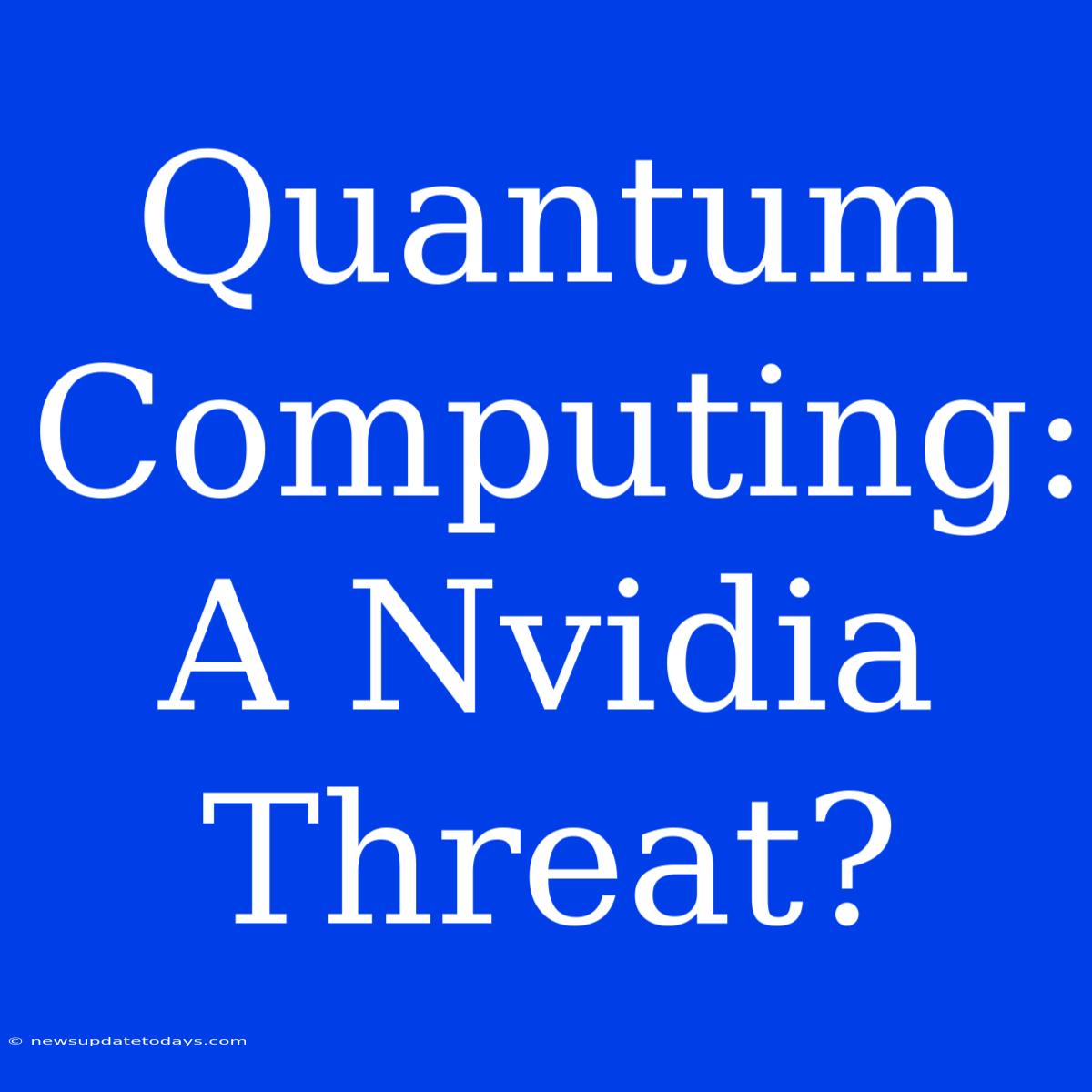Quantum Computing: A Nvidia Threat? The Looming Shadow Over GPU Dominance
Nvidia currently reigns supreme in the world of accelerated computing, largely thanks to its powerful GPUs. But a new challenger is emerging from the quantum realm, posing a potential, albeit distant, threat to Nvidia's dominance. This article explores the potential impact of quantum computing on Nvidia's future.
<h3>The Nvidia Empire: Built on GPUs</h3>
Nvidia's success is deeply rooted in its Graphics Processing Units (GPUs), initially designed for gaming but now essential for a vast range of applications, including:
- Artificial Intelligence (AI): Deep learning models rely heavily on the parallel processing power of GPUs.
- High-Performance Computing (HPC): Simulations, modeling, and scientific research heavily utilize Nvidia's GPUs.
- Data Centers: Nvidia's data center GPUs power cloud computing infrastructure and accelerate data processing.
This widespread adoption has solidified Nvidia's position as a leading semiconductor company.
<h3>Quantum Computing: A Disruptive Force?</h3>
Quantum computers leverage the principles of quantum mechanics to solve problems intractable for classical computers. This potential to revolutionize various fields presents a potential threat, albeit a long-term one, to Nvidia's GPU-centric business model. Here's why:
<h3>Potential Impacts on Nvidia's Dominance:</h3>
- AI Acceleration: Quantum computers may eventually surpass GPUs in accelerating certain AI algorithms, particularly those dealing with complex optimization problems. This could diminish the demand for Nvidia's high-end GPUs in specific AI applications.
- Drug Discovery and Materials Science: Quantum computing promises breakthroughs in drug discovery and materials science through significantly faster simulations. Currently, Nvidia GPUs power many of these simulations, but quantum computers could eventually render them obsolete.
- Cryptography: Quantum computers pose a significant threat to current encryption methods. While this presents security challenges, it also creates opportunities for developing new quantum-resistant cryptography, potentially requiring specialized hardware that may not be GPU-based.
<h3>The Long Game: A Gradual Shift, Not a Sudden Overturn</h3>
It's crucial to understand that quantum computing is still in its nascent stages. While the potential is immense, widespread adoption is years, if not decades, away. The impact on Nvidia will be gradual, not a sudden collapse. Nvidia itself is actively involved in quantum computing research, indicating a proactive approach to the potential disruption.
<h3>Nvidia's Strategic Response: Adapting to the Quantum Age</h3>
Nvidia is not passively waiting for the quantum revolution to arrive. Their strategies likely include:
- Investment in Quantum Computing Research: Partnering with research institutions and startups to understand and potentially leverage quantum computing technologies.
- Hybrid Computing Approaches: Developing solutions that combine the strengths of classical and quantum computing architectures.
- Software Development for Quantum-Ready Applications: Creating software tools and frameworks to facilitate the transition to quantum computing when it matures.
<h3>Conclusion: Coexistence, Not Conquest</h3>
While quantum computing presents a potential long-term threat to Nvidia's GPU dominance, it's more likely a scenario of coexistence rather than complete conquest. Nvidia's proactive approach and the lengthy timeline for quantum computing maturity suggest that the company will likely adapt and find ways to integrate quantum technologies into its existing ecosystem. The future is likely to involve a hybrid approach, leveraging the strengths of both classical and quantum computing architectures. The real question isn't whether quantum computing will impact Nvidia, but how it will impact Nvidia and how effectively the company adapts to this evolving technological landscape.

